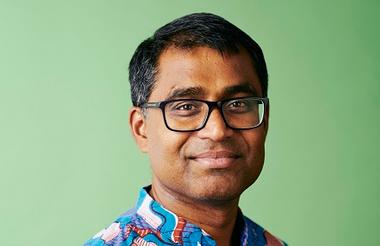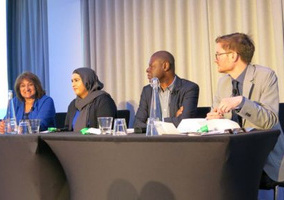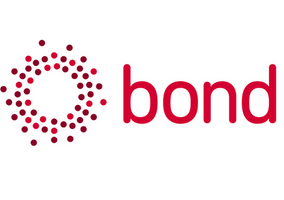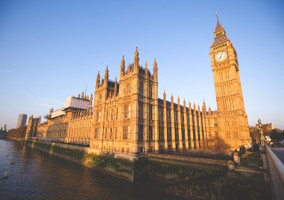Civil society in the UK needs to better engage with the systems contributing to the country’s inequality, former Oxfam GB chief executive Danny Sriskandarajah told an event in London yesterday.
Sriskandarajah, who is now CEO of social and environmental justice think tank New Economics Foundation, said he worried that too many British charities were becoming complacent and not “walking the talk” when it comes to tackling the UK’s socioeconomic struggles.
Speaking at the NPC Ignites annual conference, Sriskandarajah said many in the sector were “failing to understand” flaws in the UK’s economic and political systems and were “intimidated” by them.
He said: “If civil society doesn’t act, it risks becoming a sector that does a lot of little things here and there without a sense of what we’re trying to achieve.”
‘Deeply flawed’ political and economic systems
Sriskandarajah, who recently released a book called Power to the People on the importance of citizen action, said: “I worry that too many in British civil society are failing to understand the crisis.
“We are the inheritors of a deeply flawed political system, and unless we [understand] how and why it’s flawed and our role within it, we are lost.
“We are also inheritors of a deeply broken economic system, and unless we understand how and why it’s broken and our role within it, we will not achieve the change we desire.”
He felt that the sector also needs to better understand “what changes we might make within our own sector, within our own system” in order to be better able to help beneficiaries.
Charities ‘intimidated’ by economic policymaking
Sriskandarajah expressed concern at how little many in the sector appear to be actively engaging with economic policy in particular, and how this may hinder the work they are trying to do.
“I am struck by how few mainstream civil society organisations or initiatives engage with economic policymaking, partly because it’s intimidating.
“Those of us in civil society have assumed that we do what we do alongside economic life and that the economy will be fine, and our job is to tinker here or change this or do that, empower this group or give better access to that group.
“But unless we understand how deeply problematic the wider economic system is, we’re lost because all we’re doing is playing our part in a system that’s driving inequality. Inequality is rising in almost every country in the world, including this one.
“What are we doing through our own organisations, through our own activism, to challenge the increasingly unequal, certainly unfair and unjust economic system?”
‘Walking the talk’
Sriskandarajah concluded by noting that ultimately, many charities still need to ensure the values by which they operate match up to the values they claim to stand for, and “lead by example”.
“Our system also needs to think about how we can lead by example, and that brings us to fundamental questions about our sector.
“For example, how power works in our sector – do we work in organisations that replicate hierarchies and systems of power that we complain about in the rest of the world, and can we do better?
“I think the answer is there are amazing civil society organisations that are modelling new ways of working, that are thinking about ‘the how’, and making ‘the how’ matter as much as ‘the what’.
“It’s really important that we as a community lean into some of those challenges about ‘walking the talk’ – walking the talk on diversity, walking the talk on sharing power, walking the talk on shifting power. I think that’s a really important responsibility that we have.
“If we really are going to deliver more power to the people, to rescue these deeply flawed systems, to reinvent them, then we need to be intentional about it. We need to be thoughtful about it.”
Related articles












